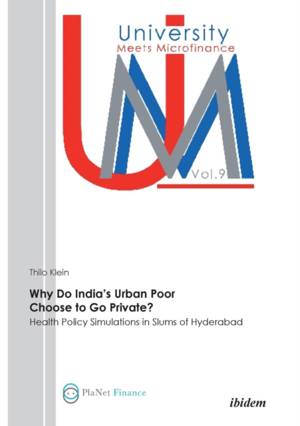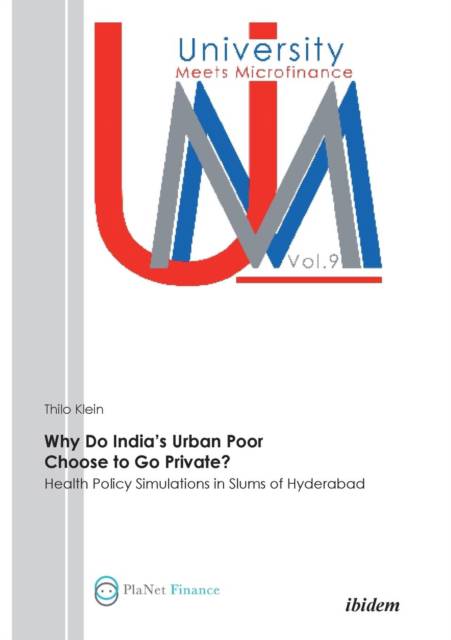
Bedankt voor het vertrouwen het afgelopen jaar! Om jou te bedanken bieden we GRATIS verzending (in België) aan op alles gedurende de hele maand januari.
- Afhalen na 1 uur in een winkel met voorraad
- In januari gratis thuislevering in België
- Ruim aanbod met 7 miljoen producten
Bedankt voor het vertrouwen het afgelopen jaar! Om jou te bedanken bieden we GRATIS verzending (in België) aan op alles gedurende de hele maand januari.
- Afhalen na 1 uur in een winkel met voorraad
- In januari gratis thuislevering in België
- Ruim aanbod met 7 miljoen producten
Zoeken
Why Do India's Urban Poor Choose to Go Private?
Health Policy Simulations in Slums of Hyderabad
Thilo Klein
€ 21,45
+ 42 punten
Omschrijving
Why does a large proportion of India s urban poor choose to pay for private health services when public services are essentially free of charge? Drawing from previous research, this study takes the underprovision of the medication component in public health packages as a starting point. Field evidence shows that patients in public health facilities often have to get external medication, whereas private hospitals offer a menu of pre-specified care packages.
Thilo Klein contributes an answer as to why the poor choose to go private by investigating their risk-aversion and demand for insurance in the choice of health facilities. In discrete choice experiments on maternity care in the slums of Hyderabad, the author finds that the lowest income group attaches significantly higher importance to full medication maternity care packages. In line with Expected Utility theory, the study further finds empirical evidence that this insurance demand of the poor is partially explained by their risk-aversion.
The findings suggest that an effective pro-poor policy should provide insurance cover for medication-related expenses. They have significant implications for the provision of public health care to the poor and are important for policy-makers and health management alike.
Thilo Klein contributes an answer as to why the poor choose to go private by investigating their risk-aversion and demand for insurance in the choice of health facilities. In discrete choice experiments on maternity care in the slums of Hyderabad, the author finds that the lowest income group attaches significantly higher importance to full medication maternity care packages. In line with Expected Utility theory, the study further finds empirical evidence that this insurance demand of the poor is partially explained by their risk-aversion.
The findings suggest that an effective pro-poor policy should provide insurance cover for medication-related expenses. They have significant implications for the provision of public health care to the poor and are important for policy-makers and health management alike.
Specificaties
Betrokkenen
- Auteur(s):
- Uitgeverij:
Inhoud
- Aantal bladzijden:
- 90
- Taal:
- Engels
- Reeks:
- Reeksnummer:
- nr. 9
Eigenschappen
- Productcode (EAN):
- 9783838202389
- Verschijningsdatum:
- 1/08/2012
- Uitvoering:
- Paperback
- Afmetingen:
- 148 mm x 209 mm
- Gewicht:
- 132 g

Alleen bij Standaard Boekhandel
+ 42 punten op je klantenkaart van Standaard Boekhandel
Beoordelingen
We publiceren alleen reviews die voldoen aan de voorwaarden voor reviews. Bekijk onze voorwaarden voor reviews.









